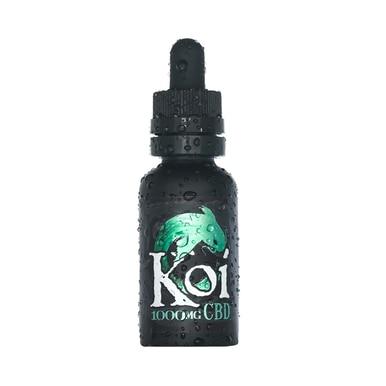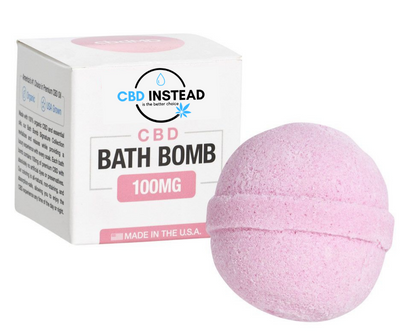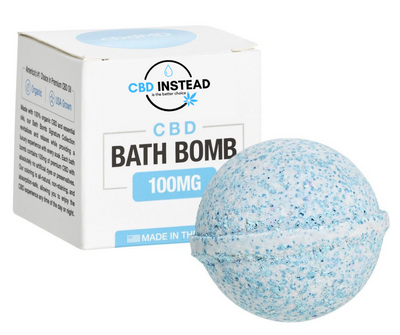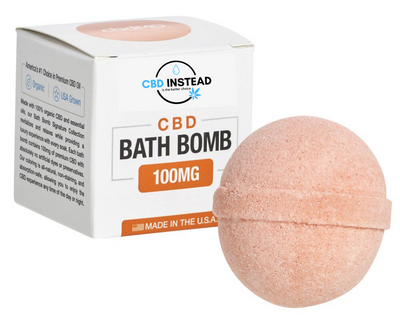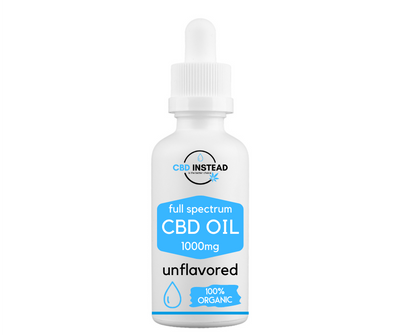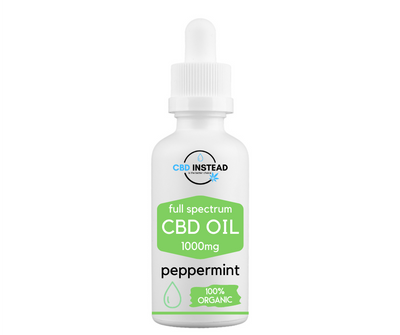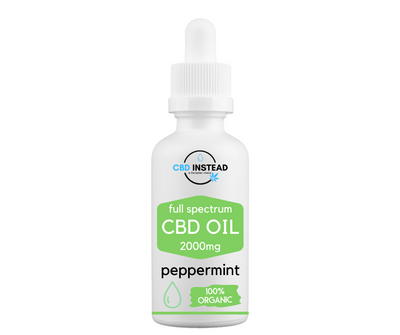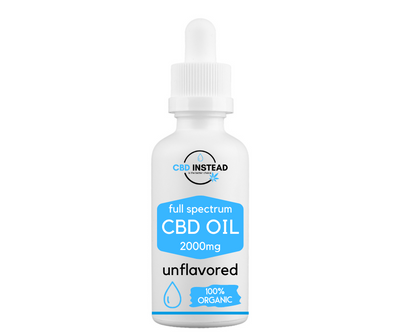What you eat plays a huge role in your health. You have probably heard this so many times; you may have forgotten what this really means. The only way your body receives the nutrients it needs to function is by what you ingest. Scientists are starting to discover that your gut health may be the key to many different illnesses and disorders as well as maintaining a healthy body and mind.

The Importance of Gut Health
In your gut, you have hundreds of different bacteria with millions of different genes that are paired with other tiny organisms to make up what is called the microbiota. Everyone’s microbiota is different and unique determined by your environment, foods you eat, and your mother’s microbiota. This bacteria has one of the biggest impacts on your health affecting everything in your body from your mood to your heart health.
Gut Health and Mood
There is a communication pathway that travels between the central nervous system and the gut microbiota called the gut-brain-axis. There is evidence that gut microbiota is associated with gastrointestinal and extra-gastrointestinal diseases. While this may still seem like still just a tummy problem, inflammation of the gut has been linked to causing several mental illnesses including anxiety and depression, which are both unfortunately too common in our society today. Scientists believe that by regulating the gut bacteria through probiotics, you may have the ability to restore balance and treat anxiety and depression.
Gut Health and the Immune System
The gut microbiota in the gastrointestinal tract also helps regulate immune homeostasis. When the gut bacteria is altered, it can cause immune dysregulation. Studies suggest that the gut microbiota helps to regulate more than just the intestinal immunity, but systematic immunity as well. Scientists believe this is why gut health can contribute to autoimmune diseases like Chrons and fibromyalgia.
Gut Health and Bones
Believe it or not, studies are beginning to emerge that are showing a link between gut health and your bones. Scientists have found that there are several prebiotics that when reaching the lower intestine result in altered gut microbiome. This is thought to enhance fermentation of the fibers that produce short-chain fatty acid. Research has shown that these changes are positively correlated with an increase in fractional calcium absorption in adolescent participants and an increase in bone density and strength in animal models.
Gut Health and Your Heart
Like mentioned before, short-chain fatty acids also seem to play a role in regulating your blood pressure. Rodent models have suggested that these fats are involved in blood vessel constriction and dilation. Scientists believe that the toxins released from microbes may influence kidney function as well, which is another key component in blood pressure regulation.
How Can You Tell if Your Gut is Unhealthy?
One of the first things you can do is look at your diet. What are you eating? Do you eat junk good all day? Your gut isn’t happy with you. If you feel that you maintain a pretty okay diet, there are some other red flags to look out for that is your body telling you that something needs to change.
- Irregular bathroom schedule
- Upset stomach
- Diarrhea
- Constipation
- Craving sweets
- Weight fluctuations
- Poor sleep
- Mood problems
- Skin problems
- Autoimmunity
How to Have a Healthy Gut

Healthy Diet
Can I say this one enough? Eating garbage is going to make you feel like garbage. That burger may be really good at the time, but if your health is your concern, it might not be worth it. Eating a diverse range of foods is important so you can get a diverse range of microbes to help regulate your system. Foods like fruits, vegetables, legumes, and whole grains should be a part of your diet every day.
Probiotics
You can find probiotics anywhere! You can get them in a pill or find it in yummy foods! Try adding these foods to your diet in addition to the wide range of other foods:
- Sauerkraut
- Yogurt
- Pickled cucumbers
- Sourdough
- Chocolate
- Cheese
Reduce sugar and process foods
It’s not impossible to cut out processed foods and sugars, but it is really hard. If you don’t think you can quit cold turkey, just reduce the amount you are eating right now. Considering that craving sweets are a sign of an unhealthy gut, your body wants to work against you on this one. But you have to try your best because these foods are just going to make your gut hate you.
Lower stress
Stress causes all sorts of problems. It is unfortunate that is such a big part of all of our lives. So how do some of us do it? How do we go through this stress ball of a world and come out barely scathed? Stress management, of course! Doing yoga, exercising, eating healthy, having a healthy sleep schedule, and reforming the way you think can all help you reduce your stress levels which will, in turn, make your gut very happy.
Take CBD
Studies have shown that there is a strong link between your gut and your endocannabinoid system. Considering that CBD oil interacts with this system, researchers have started to figure out what that means for our gut health. They haven’t figured it all out quite yet, but they have some exciting information about how CBD oil may be able to help you with your gut health.
What Is CBD?
Cannabidiol (CBD) is a chemical that comes from the cannabis plant. Unlike THC, this cannabinoid doesn’t cause intoxicating effects while offering a wide range of health benefits. The reason that CBD hemp oil is effective in so many different ways is that it interacts with our endocannabinoid system which is in charge of our entire body’s homeostasis.
The Endocannabinoid System
You have a system in your body that makes sure that all of the other systems are running smoothly like a supervisor in a factory called the endocannabinoid system. It oversees things like your heart rate, body temperature, and thought process. Without this system, your body wouldn’t have any mediation, causing complete chaos. The way that the endocannabinoid system helps to regulate your body is by using endocannabinoids which bind to and stimulate cannabinoid receptors.
Endocannabinoids and Cannabinoid Receptors
Do you remember that I Love Lucy episode where the assembly line gets out of control, and she ends up stuffing her face and pockets with chocolate? That is what your brain could turn into if your endocannabinoids aren’t working properly. Your brain is made up of billions of neurons that are sending electrical charges all over your brain sending messages. Most of these messages travel through the synapse from the presynaptic neuron to the postsynaptic neuron. Without endocannabinoids, these messages have the ability to overload the postsynaptic neurons, causing things like pain, anxiety, and other neurological issues.
Endocannabinoids travel backward in comparison to the neurotransmitters that are shooting through the synapse. Their purpose is to bind to cannabinoid receptors on the presynaptic cell and give it a message from the receiving cell. If the cell sending messages is being too overbearing causing you to stuff thoughts and emotions in any nook and cranny you can find, the endocannabinoids will tell the cell to stop sending out so many signals. If the cell isn’t sending enough signals, the endocannabinoid will tell the cell to pick it up with production.
The two main cannabinoid receptors that we know of today are the CB1 and CB2 receptors. The endocannabinoids that stimulate these receptors are anandamide and 2-AG. Both endocannabinoids bind to both cannabinoid receptors. However, they mainly bind with a specific one. Anandamide mainly binds with the CB1 receptor which helps mediate the neurological system which deals with pain, your mood, sleep cycle, and appetite. The endocannabinoid 2-AG binds mainly with the CB2 receptor which helps to regulate your immune system.
How Does CBD Help with Gut Health?

Endocannabinoids in the Gut
For centuries, cannabis has been used medicinally for a variety of disorders including ones associated with the gastrointestinal tract. Before scientists even discovered the CB1 receptor in a rodent brain, scientists had evidence that cannabinoids were important regulators in the gastrointestinal tract. Recent findings have suggested that the endocannabinoid system plays a key role in regulating gastrointestinal function and possibly it’s dysfunction, as well.
Stress and the Gut
Studies have shown that psychological stress makes changes in the gut microbiota which leads to intestinal permeability. Increased intestinal permeability leads to significant damage to the immune system, which has been demonstrated in diseases like inflammatory bowel disease, diabetes, asthma, and psychiatric disorders like anxiety, autism, and depression. Studies have shown that CBD oil may be able to help protect against intestinal permeability effectively regulating the microbiota.
CBD and Gut Recovery
When your gut is unhappy, your body is unhappy. This can cause inflammation in either your gastrointestinal tract or other places in or on your body. While regulating your gut health, taking CBD oil can help reduce the inflammation helping to prevent any further damage that comes along with inflammation. CBD oil also reduces pain and nausea, helping to further relief discomfort as you change your lifestyle to match what your body needs.















